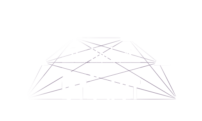My approach
In psychotherapy, coaching or supervision I support you working with your concern. This may be a clinical condition that needs to be resolved or relieved.
Or you may have a specific goal regarding your personal development, your relationships or your work situation.
In the case of regular supervision, the concerns or goals may be different at each appointment, still the focus is on new perspectives and possibilities for action.
As a systemic psychotherapist, coach and supervisor, a “red thread” of your goal or concern is important to me. This makes it possible to navigate whether progress has been possible. However, solution orientation, searching for resources and focus on the future can be helpful in different ways at different stages. Often it is first necessary to understand problems better and to process them emotionally. Only then solutions can succeed. In addition to focusing on the future, dealing with the past and the present can allow for further clarification.

For me, systemic work also means taking various systemic factors into account in a path of change, such as:
Body/psyche/mind,
Subject level/emotions,
Individual/couple/family,
Work/education/personal life,
Transitions or
Cultural factors.

In Systemic psychotherapy, coaching and supervision there are different theoretical sub-groupings, for example the solution-oriented or the narrative approach.
In my training and further education (ÖAS, VPA, ÖAGG, IST,…) and more than 20 years of professional experience I have developed an integrative methodology that combines different systemic models.
It is especially important to me to meet my clients on equal terms. For me this means that you are the expert of your life, I am an expert for accompanying a change process.
Transparency and feedback are welcomed. I am always happy to explain what I am doing, for example why I am asking a certain question. And I ask you for feedback, for example if you are irritated about anything. Especially in such situations clarifications can be a learning opportunity.
I am neutral towards different solutions to problems. I support you in finding a good solution for you – but I don’t anticipate which solution is the best for you.
I am not neutral towards my clients, but biased in the sense that I support you to the best of my knowledge and belief. When working with several clients (couples, families, teams) I am impartial, i.e. I actively support all parties involved in problem solving at the same time.
Dialogue is a very important element of my work.
It is a lot about talking, thinking and feeling.
What else happens besides talking?
In systemic work there are many methods to visualize topics or to make them more “comprehensible” in other ways.
This can be, for example, a constellation with small family board figures, a written brainstorming on flipchart paper, or placing and labeling a string on the floor as a timeline.
Depending on the client, it can also occur that none ot the mentioned methods are applied.
With children and adolescents, the playful element is particularly important, and I have various materials for this.
Exercises between lessons are very helpful for some clients. For example, to observe something specific until the next session or to do something differently than before. There are big differences between this kind of exercises and schoolwork. If an exercise is not done in the context of psychotherapy or coaching, that is also an interesting result and not a minus point.

Every person is different and every change process is different.
That’s why I adjust options in our dialogue suiting you and your concerns.
In order that your desired development can become possible for you.
